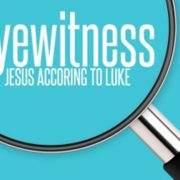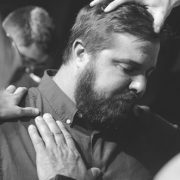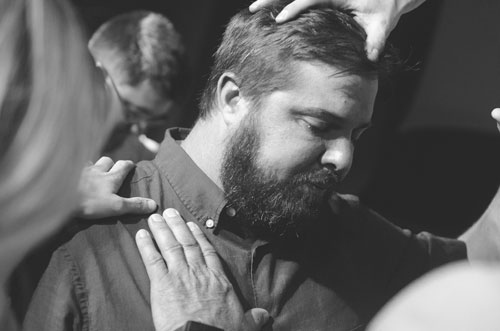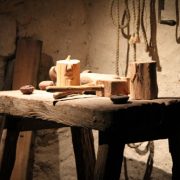Altars and Tents
And Abram moved from there to the mountain east of Bethel, and he pitched his tent with Bethel on the west and Ai on the east; there he built an altar to the Lord and called on the name of the Lord. (Genesis 12:8)
God had told Abram to get out of his country and go to the place God would show him. God’s commands rarely come with reasons, though sometimes we feel the right to demand them.
Though God rarely gives reasons, He often gives promises with His commands. Without going into great detail, God promised Abram a land, a nation, and a blessing. However, if he was to make them his own, he had to follow through and be obedient to God. Though his full obedience was a slow in coming, it came.

True faith will embrace both God’s promise and His command. The great Scottish preacher Alexander Maclaren said: “Some people’s faith says that it delights in God’s promises, but it does not delight in His commandments. That is no faith at all. Whoever takes God at His word, will take all His words. There is no faith without obedience; there is no true obedience without faith.”
Before Abram’s faith could fully inherit the promise of receiving a land, it had to obey God’s command to separate from his old country and his family. God still requires that those who will receive new life in Jesus separate themselves from the damaging aspects of their old life. You really can’t have it both ways. Either your faith will separate you from the world, or the world will separate you from your faith and your God.
Genesis 12:8 shows there are two emblems that can always be associated with a true man or woman of faith: the tent and the altar.
The tent speaks of someone who lives as a traveler; a person who is a sojourner or a pilgrim. They recognize that the land they are in is not their home; therefore they live in a tent, not a house. Every true man and woman of faith recognizes that this world is not their home; they are only visiting this planet. They are citizens of a better country, of a New Jerusalem that will come down from heaven, not one that can be built on this earth. They live and work on the earth, but always with the consciousness that they are really aliens and pilgrims; they will one day travel on to their true country.
The altar is the other mark of the man or woman of faith. It speaks of a life of worship and sacrifice. Though this world is not our own, while we are here we will worship our God, and give our life to Him as a sacrifice of service. The world will see our altars of worship, and they will testify to everyone that there are those who honor and worship God in this land, that there are those who will sacrifice in order to please their God.
May God grant us the power and the grace to be such examples, and to forever live lives that testify to the tent of the pilgrim and the altar of the worshipper.













